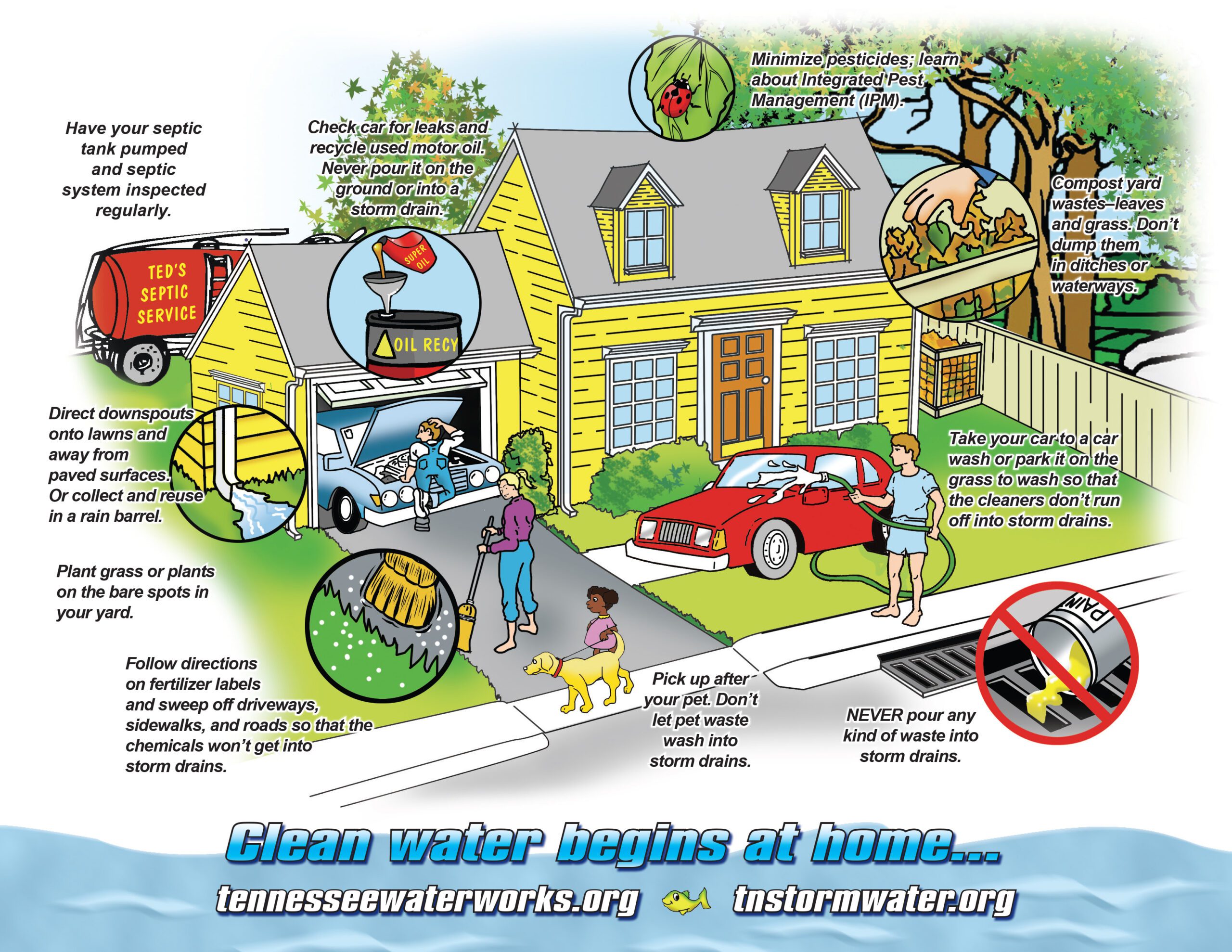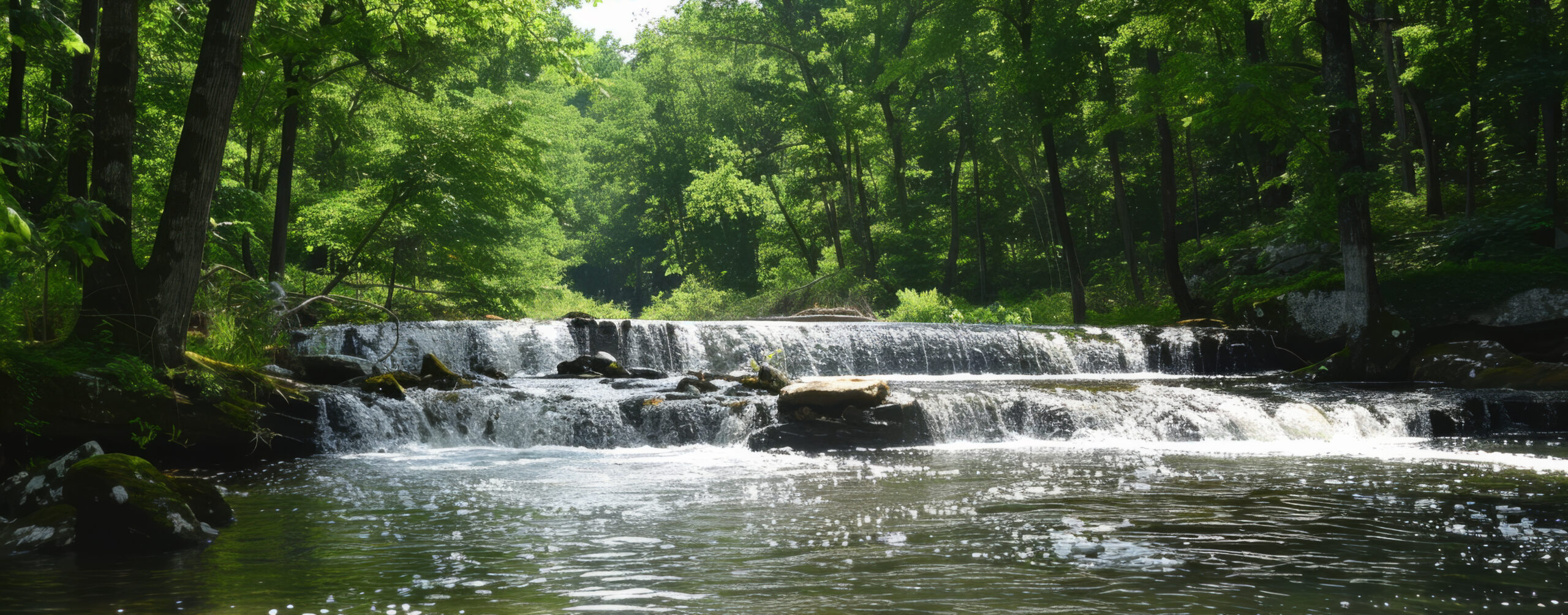What is stormwater?
Have you ever noticed water rushing down the streets after a storm? That’s stormwater runoff—a mixture of rain or melted snow flowing over surfaces like roads and sidewalks. Surfaces like sidewalks and parking lots can prevent rainwater from soaking into the ground creating stormwater runoff. It might seem harmless, but it’s a major carrier of pollutants. From chemicals to debris, stormwater picks up various pollutants on its journey.
Why is stormwater important?
Stormwater affects the quality of water that we use every day for ourselves, as well as for wildlife in our local ecosystems. As it travels to storm drain inlets, stormwater collects pollutants from highways, streets, sidewalks, and yards. These pollutants can include chemicals from yards and lawns, pet waste, leaked auto fluids, cigarette butts, litter, and trash. Polluted stormwater does not go through wastewater treatment, so it ends up directly deposited into waterways along with any accumulated contaminants.
How does stormwater pollution affect me?
Polluted stormwater greatly reduces the quality of water used for recreation, drinking, washing, and fishing. Stormwater pollution can lead to unsanitary living conditions and flooding in neighborhoods during the rainy season.
How can I help?
Small actions can have a major impact on our waterways. Let’s work together to change our habits and prevent stormwater pollution.
Chemical Disposal
Be mindful of how you dispose of household chemicals such as pesticides, motor oil and paint.
Pouring them onto the ground or into storm drains can lead to stormwater pollution. Instead, recycle or properly dispose of them in bulk recycling events in your county.
Pet Waste
Pet waste is more than an inconvenience—it can harm our local water supply!
When walking your pet, always pick up after your furry friend and dispose of it properly. This simple action helps prevent harmful bacteria and nutrients from polluting our local waterways.
Septic Tanks
Leaking or poorly maintained septic systems can harm our waterways.
Protect public health and the environment by inspecting your system every three years and pumping your tank every three to five years. Regular maintenance can prevent contamination discharge into nearby rivers and lakes.
Lawn Care
Excessive fertilizers and pesticides can harm our streams. When using pesticides and fertilizers, follow recommended amounts to prevent runoff into our waterways. Use them sparingly and consider organic alternatives for a healthier environment.
Overwatering your lawn not only wastes water but also contributes to stormwater pollution. Try using a soaker hose and conserve water while keeping your lawn lush.
Don’t let yard waste, like grass clippings and weeds, become pollutants. Compost or mulch it instead of leaving it on the street or sweeping it into storm drains.
Auto Care
Washing your car at home may seem harmless, but it can send pollutants into storm drains and harm aquatic life. Use a commercial car wash or wash on your grassy yard to protect our environment.
Dumping automotive fluids into storm drains pollutes our rivers and lakes. Be responsible for repairing leaks and properly disposing of used auto fluids and batteries at designated drop-off locations.
Small changes at home can have a big impact on our drinking water, rivers, and lakes! Use this guide to reduce stormwater pollutants around your home.



